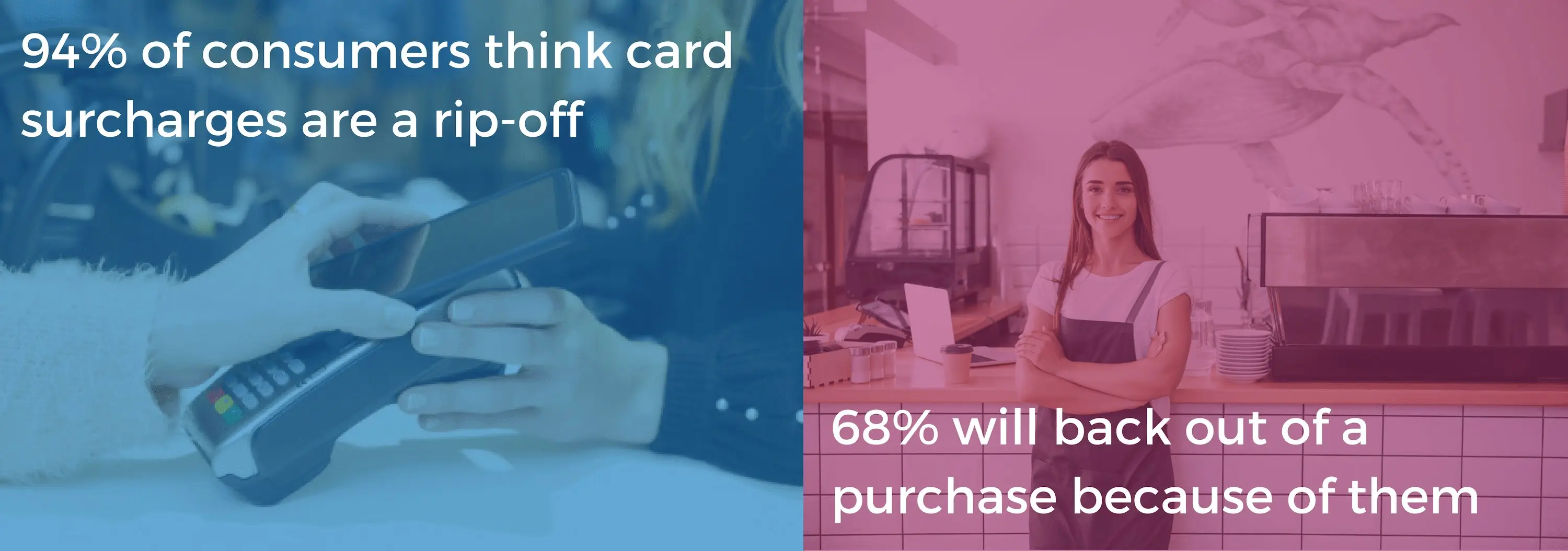What is a fee-free shop?
When they “tap & go”, many Aussies are unwittingly overpaying for everyday purchases. Payment card surcharges are eating away at bank balances one transaction at a time. Finder believes consumers shouldn’t be hit with a surcharge or minimum spend amount for using their credit, debit or prepaid card. Our Fee-Free Shop campaign in 2018 highlighted and recognised shops that don't charge extra for this convenience. It's no longer active, but we continue to advocate for consumers getting the best deal and not paying unnecessary fees.
Why should consumers pay more for using cards instead of cash?
It's official, more Australians now use their cards to pay for everyday purchases than cash. Whether it's a quick coffee through to a full grocery shop, cash is no longer king when it comes to how we pay.
Despite this, many retailers continue to hit shoppers with a surcharge of up to 3%, just for choosing to pay with their cards.
At Finder, we think processing card payments should be considered just another cost of doing business, like keeping the lights on or paying staff, and shouldn't be passed on to customers. When we surveyed the nation, 94% of our fellow Aussies agreed that surcharge fees are a rip off.
In 2017 the RBA banned excessive card surcharges which helped reduce the cost to consumers paying by card, but we don't think consumers should have to cover the cost of paying with a card at all.
On top of surcharges, some retailers enforce excessive minimum spends for paying with plastic, and it's all legal.
Surcharges are bad for business: While we recognise that using the interchange network is a genuine cost and we support small business, retailers who absorb this cost and dump minimum spend requirements will ultimately build better customer loyalty which means more success for business.
How much can I save on card fees?
What you pay as a card surcharge fee depends on the retailer, the type of card you use and the amount of money you spend. While it’s usually around 0.5% of the transaction value for debit card purchases, it could be up to 3% for some credit cards.
If you bought coffee and lunch five days a week and paid a 1.5% card surcharge fee each time, it would cost you $50.62 per year. That might not seem like a lot, but that's just coffee and lunch.
Frequently Asked Questions
Why should my business be fee-free?

With 94% of Australian consumers thinking that card surcharges are a rip-off, and 68% of them prepared to back out of a purchase because of this fee, it’s time for businesses to ditch them.1 Absorbing the cost of card payments is not only great for consumers, but it’s great for businesses too. 90% of Aussies consider zero surcharges important when picking which businesses they frequent. 72% are also likely to tell their friends to avoid a business that surcharges.2
In addition to boosting customer loyalty, encouraging consumers to use card payments saves your business time and money. In August 2018, Square’s report on the cost of cash revealed that Aussie businesses spend an average of 216 hours per year handling, counting and banking cash.3 And with more than half of the business owners surveyed acknowledging that their businesses will become cashless in the future, now is the time to go fee-free.3